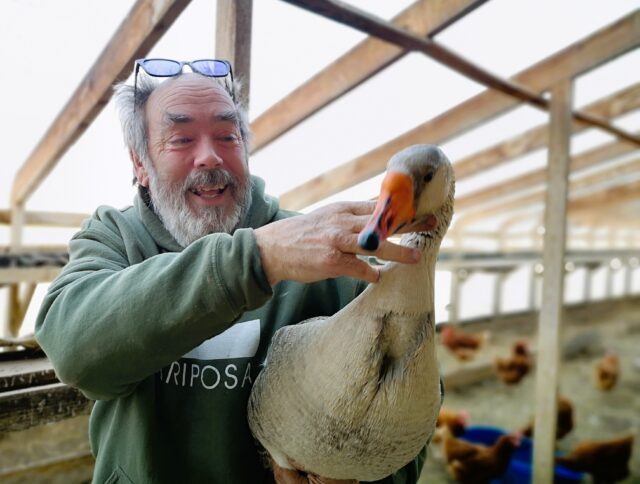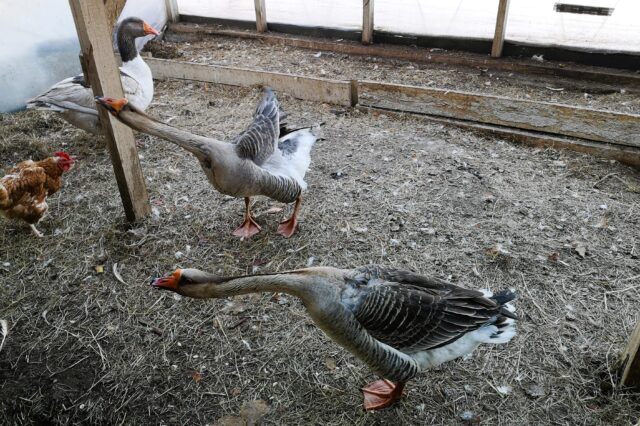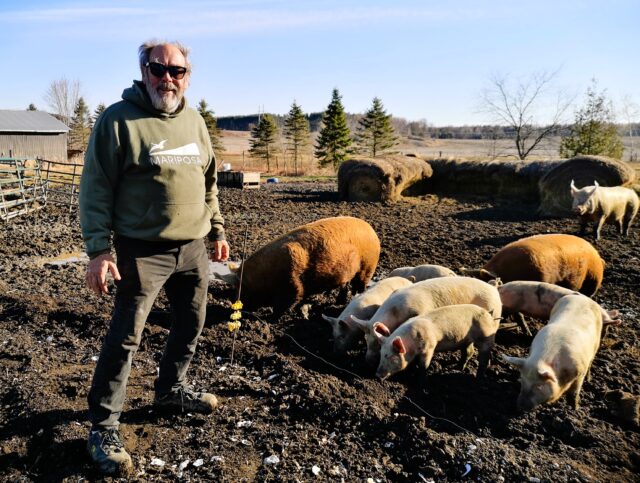Mariposa Farm: bounty for local restaurants

In their large, open chicken coop with its ample shelter and soft straw bedding, more than a dozen Rhode Island Reds converge to peck hungrily at their morning feed at Mariposa Farm in Plantagenet. Twirling just over their wobbly, bright red combs – and out of context – is a mirror disco ball.
“When the sun hits it, it sparkles everywhere. Lindsay, a friend here on the farm, put it there,” says Mariposa farmer Ian Walker.
While they aren’t exactly equals to John Travolta in “Saturday Night Fever,” the Reds strut quite happily, so the whimsy of the disco ball is perhaps fitting.

While the flock forages, dust bathes and flaps their wings with comic swagger during the carefree course of their morning, the chores at Mariposa continue for Walker and his partner and co-farmer Suzanne Lavoie.
The 110 acres of mixed farming supply dozens of restaurants in the Ottawa-Gatineau area with ducks, geese, and pork from Duroc and Tamworth pigs as well as a smaller inventory of guinea hens, bison and wild boar raised on other local farms and which Mariposa sells, either online or at their Saturday farm market.
Add to that blend the small-scale farmers who rent land from Walker and Lavoie for community-shared agriculture (CSA) programs and Mariposa is a bounty of agricultural output only about an hour from downtown Ottawa.
The local concept is the passion that drives Mariposa, as is a dedication to sustainable and regenerative farming practices over the past four decades: Ottawa-born Walker purchased the farm in 1980 when he was 19 years old – and when he was apparently something of rabble-rouser and thumbing his nose gently at institutions.
“I was freshly expelled from school – that being Ashbury. It was located on Mariposa Avenue, and I always liked the word Mariposa,” he says of the origin of the farm’s name.
Mariposa Farm is a recognizable name when it comes to Muscovy (or Barbary) ducks, a species native to North and South America. They are black and white in colour and, perhaps surprisingly for ducks, silent – unlike the raucous and enormous geese with whom they share quarters in the barn.

As ducks go, the species is a relatively slim one too: “les canards maigre,” according to Walker, with lots of meat but not a lot of fat. Unlike the uniformity of the popular Pekin duck, with males and females essentially the same size, Muscovy males dress out to 3.5 kgs and the females 1.5 kgs, he notes.
For more about Walker and Mariposa Farm, visit EAP.

